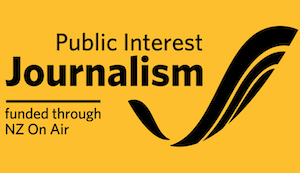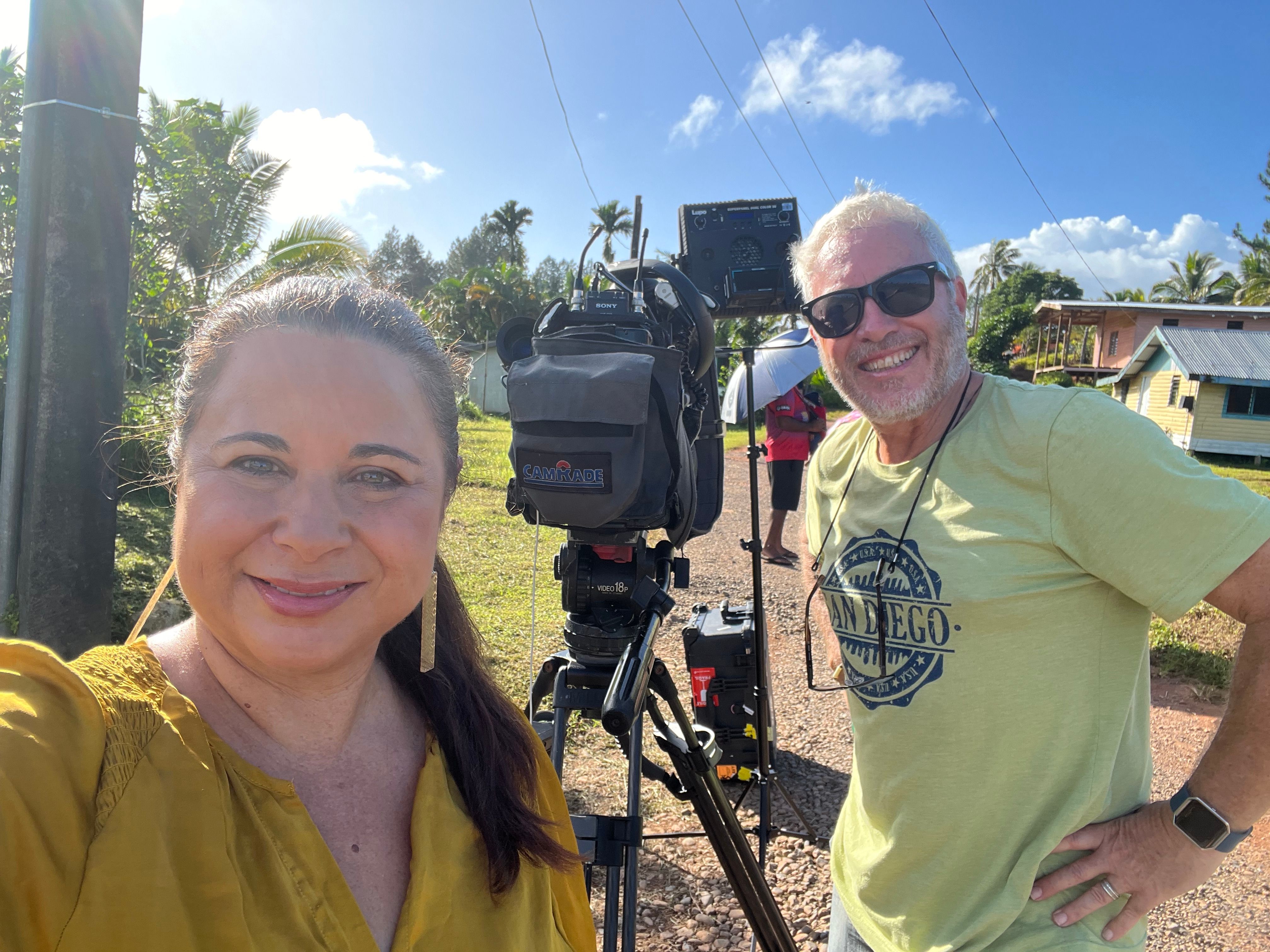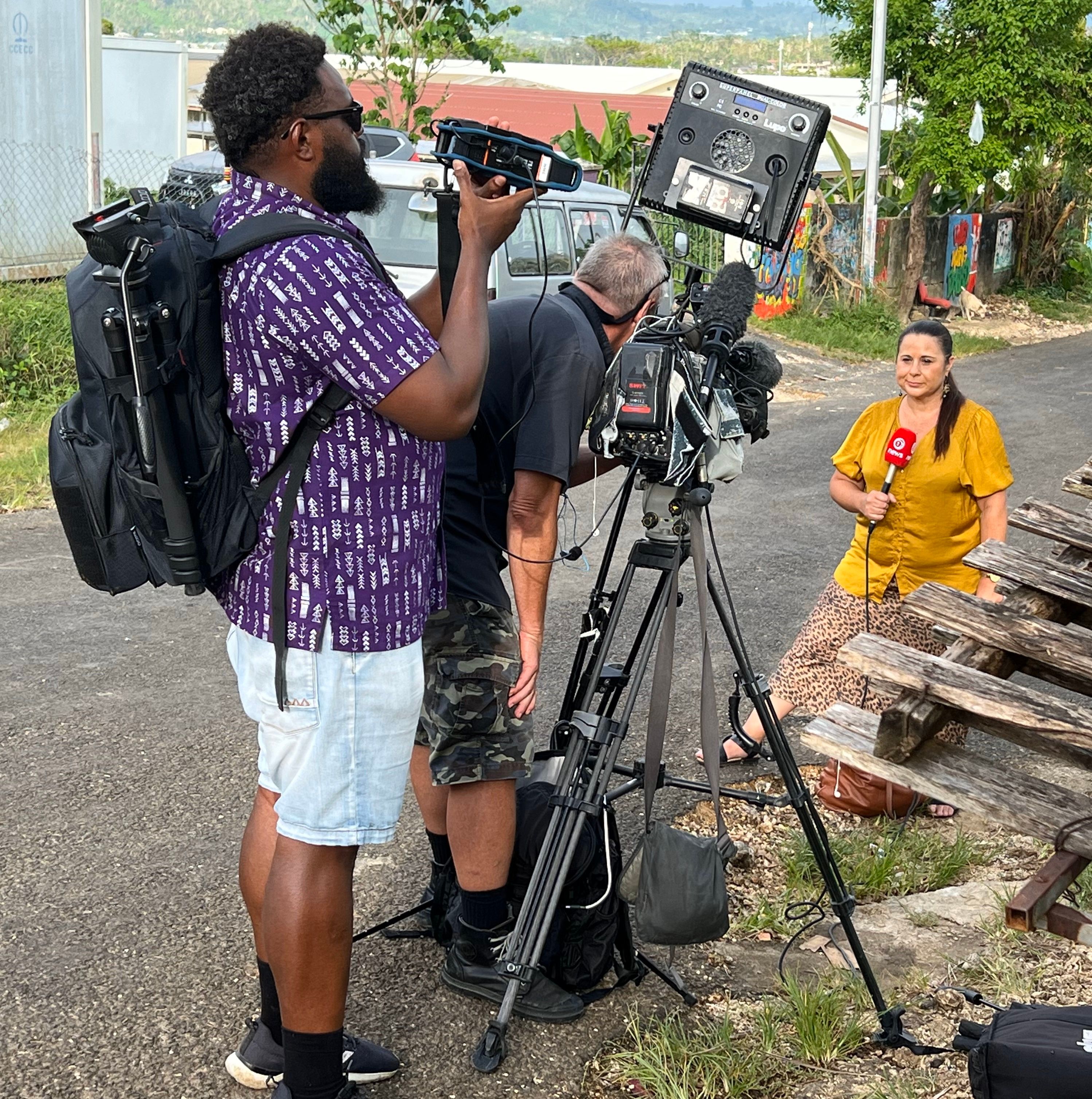By Khalia Strong
Barbara Dreaver is a familiar face on Aotearoa New Zealand television screens, beloved to some, and feared by others who have been exposed by her work across three decades.
Dreaver has been named an Officer of the New Zealand Order of Merit in the New Years Honours list, for services to investigative journalism and Pacific issues.
Speaking after pulling a late night finishing news stories, Dreaver says it is hard to find the words.

“Completely overwhelmed, really honoured . . . I’m really pleased because my family are super thrilled.,” she says.
“That’s really what it’s about, is when the people who you love and mean so much to you, when they’re so proud, that means the world.
“It does feel awkward . . . to be talking about myself, and as Pacific people we find that a bit hard as well . . . because they don’t want to stick their head out of the water, they just do what they do, and now I’m getting a good taste of my own medicine.”
Dreaver was born in Kiribati, her mother’s homeland and grew up on the island of Tarawa, she also has close family in Fiji, Tonga, the Cook Islands and Solomon Islands. She says receiving the accolade will be momentous for her family, as well as honouring her parents and those who have gone before her.
“My Dad said he’s going to go and buy a new suit, and my Mum said to him, [being from] Kiribati, ‘you could hire one’, and he says, ‘my daughter is getting a medal, I will buy a new suit, and I don’t care how much it costs I’m going to save up and buy one’.
“So to have them beside me in their later years and to be blessed with that, when it’s the time of our lives when we have to appreciate every single day with the people you love, so while I love my family so much, it’s Mum and Dad who mean so much to me.”
A history of telling stories
Dreaver’s journalism background includes co-owning a newspaper in the Cook Islands, working at Radio New Zealand, before carving out a space for herself at TVNZ working her way up to being Pacific correspondent, a role she has held for 21 years.
“My job has always been about allowing Pacific voices to have airtime, or to be there and to be represented, because that’s what’s seriously lacking, not just in New Zealand, but also internationally, it’s getting Pacific voices to be heard.
“I just play a role and am one of the many parts of the jigsaw.”

She admits exposing certain stories hasn’t always made her popular with certain people.
“Instead of trying to hide an issue and pretend that it’s not really happening, I believe that we have to show the big stuff and show the problems that we have to address it.
“You can’t just hide things under the carpet because it will come out at some point. Let’s do it our way. Let’s get it out there now.
Dreaver says being truthful isn’t hard, but sometimes goes against the grain of how Pacific communities and politicians like to be portrayed.
“Sometimes we like to just say we’re all just amazing, but things don’t change if we don’t’ speak up, if we don’t put those issues to the fore, things never change, and I think that’s wrong.”
In 2008, Dreaver was locked up in Fiji then banned from returning for eight years, after questioning the then-Prime Minister Voreqe Bainimarama.
“That was because I challenged the military commander who was pretending to be a prime minister at the time.
“Democracy and freedom of speech is everything to a journalist, so I was yelling questions to him and challenging him and it was really only a matter of time before a military dictator wants to lock up that journalist.”

Dreaver designed a journalism training programme in the Pacific, but says there is no blanket approach, remembering a workshop she ran for the Pacific Cooperation Broadcasting Limited (PCBL).
“Melanesia is complicated, you open one layer and then there’s another layer and that’s the way I conduct myself and journalism, I never pretend that I know it, because inevitably, the minute you think you know, something happens.
“I gave some advice about door stopping someone and they said to me, ‘well, what if we get stoned?’ and was like ‘we’re going to have to rethink this’.”
An ongoing conversation, and media mission
Dreaver says the reality of TV journalism isn’t glamourous, with constant deadlines and a never-ending news cycle.
“There is no work balance, it’s extremely long hours, in fact last week I had about three hours sleep when travelling with Winston Peters on a 24-hour trip to Fiji.”
Dreaver says the Pacific’s relationship with other countries is becoming more important with global superpowers scrambling for influence in the Pacific, evident at last year’s Pacific Islands Forum in the Cook Islands.
“There were 21 countries, Saudi Arabia, Norway, all there vying for influence, and I’ve been going to the Forum since the 1990s and to see this was really disturbing to me.
“Some of the big leaders were saying ‘it’s really great because it shows interest in the Pacific’, yes, but it also shows they want something from the Pacific, so the Pacific needs to be smart about how they do this and not give in to big powers throwing around money, we’ve got to stay true to ourselves.”
Hopes for the future
Despite New Zealand’s new coalition government having no Pacific representation, Dreaver is optimistic about the future of Pacific journalism.
“Pacific journalists in this country are very strong and they’re just going to keep doing their job.
“Winston Peters . . . there’s lots of controversies around him and some of them are well deserved, but he does like the Pacific and he upped the funding for the Pacific when he worked under Jacinda Ardern’s government, so let’s see what happens there.
“But whatever happens in this government, this is why journalism is important, and it’s people like me, like you, and it’s people like our colleagues who will hold them to account.”
Barbara Dreaver was made an Officer of the New Zealand Order of Merit for services to investigative journalism and Pacific communities. Khalia Strong is a Pacific Media Network journalist and this Public Interest Journalism article is republished with permission.

